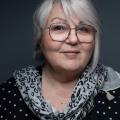We use cookies on this website. Cookies help us deliver the best experience on our website. Read about cookies.
-
- Education
- Education
- Programmes and courses
- Applications and admissions
- Tuition fees
- Scholarships
- Exchange studies at Malmö University
- Study Guidance
-
- After admission
- After admission
- Moving to Malmö
- Pre-orientation
- Arrival guide
-
- About studies at Malmö University
- About studies at Malmö University
- Why choose Malmö University
- Understanding university studies
- Connect with our students
On the page -
- Research
- Research
-
- Doctoral studies
- Doctoral studies
- Doctoral courses
-
- Doctoral schools
- Doctoral schools
- Education, Learning and Globalisation
- Doctoral school: Learning in Multicultural Societal Contexts
- ComBine
- Swedish National Graduate School in Science and Technology Education Research
- Doctoral school: Relevancing Mathematics and Science Education (RelMaS)
- Doctoral school: Sustainable Movement Education
- Finding ways in a time of great future challenges (FinnFram)
- Doctoral school: Pedagogy and Vocational Skills
- Doctoral school: Culturally Empowering Education through Language and Literature
- Research subjects
-
- Research centres
- Research centres
- Biofilms Research Centre for Biointerfaces
- Citizen Health
- Imagining and Co-Creating Futures
- Institute for Urban Research
- Malmö Institute for Migration Studies
- Literacy and Inclusive Teaching
- Centre for Work Life Studies
- Sustainable Digitalisation Research Centre
- Centre for Sexology and Sexuality Studies
-
- Research publications
- Research publications
- Search publications
- Malmö University Press
- Research events
- Participate in a research study
- Coffee Break Quiz
On the page -
- Collaboration and Innovation
- Collaboration and Innovation
-
- Areas of collaboration
- Areas of collaboration
- Muvah
- Innovation
- Collaboration with students
-
- Collaborate with researchers
- Collaborate with researchers
- Labs and facilities
- Culture collaboration
- Support Malmö University
- Alumni & Friends
On the page -
- About us
- About us
-
- Faculties and departments
- Faculties and departments
-
- Faculty of Health and Society
- Faculty of Health and Society
- Department of Biomedical Science
- Department of Criminology
- Department of Social Work
- Department of Care Science
- Department of Police Work
-
- Faculty of Culture and Society
- Faculty of Culture and Society
- Department of Urban Studies
- Department of Global Political Studies
- School of Arts and Communication
-
- Faculty of Education and Society
- Faculty of Education and Society
- Department of Childhood, Education and Society
- Department of Sports Sciences
- Department of Natural Science, Mathematics and Society
- Department of School Development and Leadership
- Department of Culture, Languages and Media
- Department of Society, Culture and Identity
-
- Faculty of Technology and Society
- Faculty of Technology and Society
- Department of Computer Science and Media Technology
- Department of Materials Science and Applied Mathematics
- Faculty of Odontology
- University Dental Clinic
-
- Find and contact Malmö University
- Find and contact Malmö University
- Visit Malmö University
- News and press
- Map of the buildings (Google Maps)
- Merchandise
- Whistleblowing
- Management and decision-making paths
-
- Vision, objectives and strategy 2025
- Vision, objectives and strategy 2025
- Global engagement
- Sustainability
- Widened recruitment and participation
- Quality assurance work at the University
-
- Malmö Academic Choir and Orchestra
- Malmö Academic Choir and Orchestra
- Student work – video pieces
-
- Annual Academic Celebration
- Annual Academic Celebration
- Academic traditions
- Meet our new professors
- The University in a troubled world
On the page
Digital education in nursing (DEN)
in nursing (DEN)
Digital Education in Nursing (DEN) is an Erasmus+ project with the overall purpose to modernise the existing curriculum for nursing students, by developing digital modules regarding lectures/examinations into new forms of education.
About the project
The pandemic has been the reason for the traditional academic education in nursing to transform into digital forms without providing teachers the opportunity to adapt their pedagogy. Teachers require support to develop their pedagogical skills from the traditional approach to a more digital one in order to maintain high standards. The traditional approach has proven inadequate to meet the current demands within academic education.
The project runs for 24 months, and the expected outcomes may have long-term positive effects on similar educations within the EU.
A European collaboration
The project consortium consists of five partner organisations representing five EU countries: Croatia, Macedonia, Slovenia, Serbia, and Sweden.
All partner organisations have a strong tradition in nursing education and have already successfully collaborated in a European (Erasmus +) project. All partners organisations have worked with digital nursing education at a different level during the pandemic.
Financer
EU-Erasmus+
Collaborators
- Goce Delcev University, Stip, North Macedonia. Contacts: Gordana Panova and Elizabeta Zisovska.
- University of Novi Sad, Novi Sad. Contacts: Serbia Dragana Milutinovic, Dragana Simin, Sanja Tomic and Vladimir Dolinaj.
- College of Nursing in Celje, Celje, Slovenia. Contacts: Mojca Poredos, Bojana Filej, Katja Esih, Tamara Stemberger Kolnik and Jernea Mreza.
- University of Applied Health Sciences, Zagreb Croatia. Contacts: Olja Vori, Vesna Turuk and Boris Ilic.
Time frame
30 June 2021 – 29 October 2023
Aim
The primary objectives of this project are to enhance the ability of lecturers at the universities, and participating organisations to provide high-quality education, including digital education. This will be achieved by focusing on:
- building teaching capacity to implement, with both blended and online, teaching and learning
- developing digital pedagogical competencies of lecturers, enabling them to deliver high-quality digital education, and to develop and/or use high-quality digital content such as innovative online resources and tools
- sharing and exchanging experiences, expertise, and resources, and in collaboration, create a digital course of mutual interest
- collaborating, regarding digital technology, by using different providers and experts in educational technologies and with experiences in relevant pedagogical practice.
Photo & Video
The DEN-project has been documented using photos and videos.
Multiplier Event
Multiplier Events are national and transnational conferences, seminars and other events organised with the purpose of disseminating the project's results.
The DEN-conference was held in Zagreb, Croatia in May 2023.
Results
The expected results of the DEN project are as follows:
- Teachers and lecturers will have an increased understanding of digital teaching pedagogic.
- Identity, adapt to, and develop the necessary measurements, assessments and actions required for quality enhancement of digital teaching and learning processes.
- Train lecturers and other teaching staff to harness pedagogical and methodological principles and new modes of teaching and learning to be able to adapt to higher nursing education.
- Develop methodology and platforms for broader integration between digital teaching and learning for postgraduate studies.
Erasmus+ Project Results Platform
Project activities, Intellectual outputs and Dissemination
Materials, results and other outputs from the project can be found here:
Learning Teaching and Training 1, LTT1 (Box)
Learning Teaching and Training 2, LTT2 (Box)
Contacts at Malmö University
Project members
-
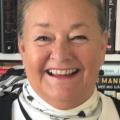
Ann-Cathrine Bramhagen - Associate Professor
ann-cathrine.bramhagen@mau.se
+46 40 665 79 40
-
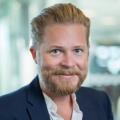
Niklas Nannskog - International officer
niklas.nannskog@mau.se
+46 40 665 75 67
-
KP
Kristina Persson - Controller
kristina.persson@mau.se
+46 40 665 79 67
-
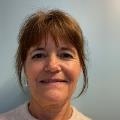
Pia Dahav - Lecturer
pia.dahav@mau.se
+46 40 665 77 03
-
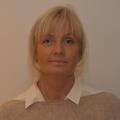
Elisabeth Renmarker - Lecturer
elisabeth.renmarker@mau.se
+46 40 665 74 29
EU-logo
Co-funded by the European Union

Co-funded by the European Union
Funded by the European Union. Views and opinions expressed are however those of the author(s) only and do not necessarily reflect those of the European Union or the European Education and Culture Executive Agency (EACEA). Neither the European Union nor EACEA can be held responsible for them.
